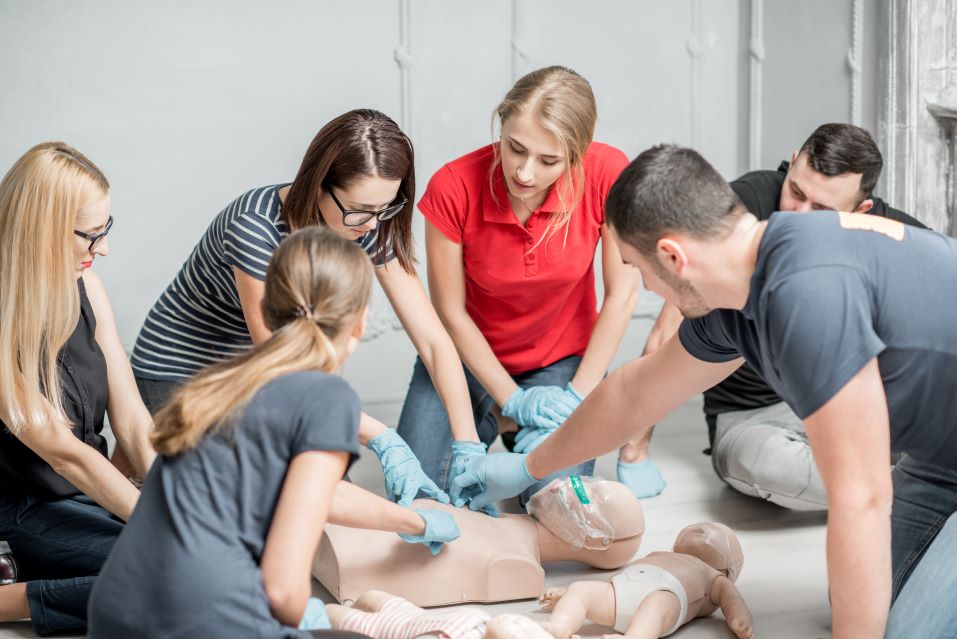Having a low-grade fever may not be a cause for concern. However, a high body temperature can indicate an illness that requires first aid treatment.
A severe or prolonged fever can bring complications. It can be difficult to self-diagnose because there can be many possible causes for the same set of symptoms.
Learn more about possible causes of fever and when to seek emergency care.
What Is Fever?
Fever refers to a condition in which the person has a higher-than-normal body temperature.
The average human body temperature ranges between 36 and 37°C. Anything above 37.5°C may indicate a low-grade (or potentially high-grade) fever.
Human body temperature may vary depending on the individual and time of day. It can often rise throughout the course of the day and is usually higher in the evening. Certain factors like physical activity, the type of material worn, high humidity, heat, strong emotions, and prescription medications can trigger the core temperature to rise.
Menstrual cycles can also cause higher body temperatures.
Signs And Symptoms
Fever is the body’s natural response to a viral infection or illness, where the immune system is fighting off the bacteria or virus.
Depending on its causes, the common fever signs and symptoms include
- Sweating
- Chills and shivering
- Headache or migraine
- Muscle pains in certain body parts
- Loss of appetite
- Changes in behaviour
- Irritability
- Dehydration
- General weakness
While high-grade fever brings more severe symptoms. Seek immediate medical care for the following:
- Cognitive impairment or confusion
- Convulsions or seizures
- Severe headache
- Loss of consciousness
- Severe pain in the head, chest, or stomach
- Skin rash or appearance of bruises
- Stiff neck
- Swelling
- Urinary discharge
Causes Of Fever
There are many potential reasons why a person’s body temperature might rise, either in the short term or over a several days or weeks. Some common causes of fever include a virus, infection, a cold or flu, stomach bug, vaccine side effects, and heat exhaustion.
The body quickly detects any intruding substance or organism (such as the unwelcome bacteria or virus), and triggers the immune system to fight the infection. As part of the process, the body adjusts it’s internal thermostat, raising the temperature and making it easier to fight the infection.
Other potential causes of fever includes inflammatory conditions, reaction to certain medications or drugs, and cancer.
Treatment
Most fever cases resolve on their own after a few days or weeks. However, there are steps to take that can help speed up the healing process.

- Medications
Over-the-counter medications like acetaminophen or ibuprofen can bring down fevers.
- Hydrate
Drinking plenty of fluids such as water, fruits juices, and drink with electrolytes helps prevent dehydration and the natural healing of organs.
- Rest
Listen to what the body needs and get enough rest. Subjecting oneself to pressure and stressful situations can prolong the recovery.
- Stay Cool
Dress in lightweight materials, preferably something breathable such as cotton. If possible, try to keep your home at a comfortably cool temperature.
Call a doctor if the fever lasts for more than three days, the temperature rises above 39.4°C or above, or if the person experiences chest pain, breathing difficulty, or other severe symptoms.
When To Seek Emergency Care?
A high fever can potentially indicate a life-threatening emergency. Go to the nearest emergency room – or call 000 immediately – in the following circumstances:
- If the fever comes with severe headache, nausea, stiff neck, rash, or confusion, it may indicate meningitis.
- If the person spends a considerable amount of time at a very high temperature and experiences confusion, rapid heartbeat, or dizziness, it may indicate a heatstroke.
- High body temperature with diarrhea, vomiting, exhaustion, headache, and confusion may indicate toxic shock syndrome.
First Aid Training
Although most fevers are treatable at home, some cases may indicate a serious problem and require a trip to the emergency rooms.
For high-grade fevers with abnormal or protracted symptoms, it is best to get immediate treatment by getting medical help.
Learn first aid to recognize warning signs of fever.








